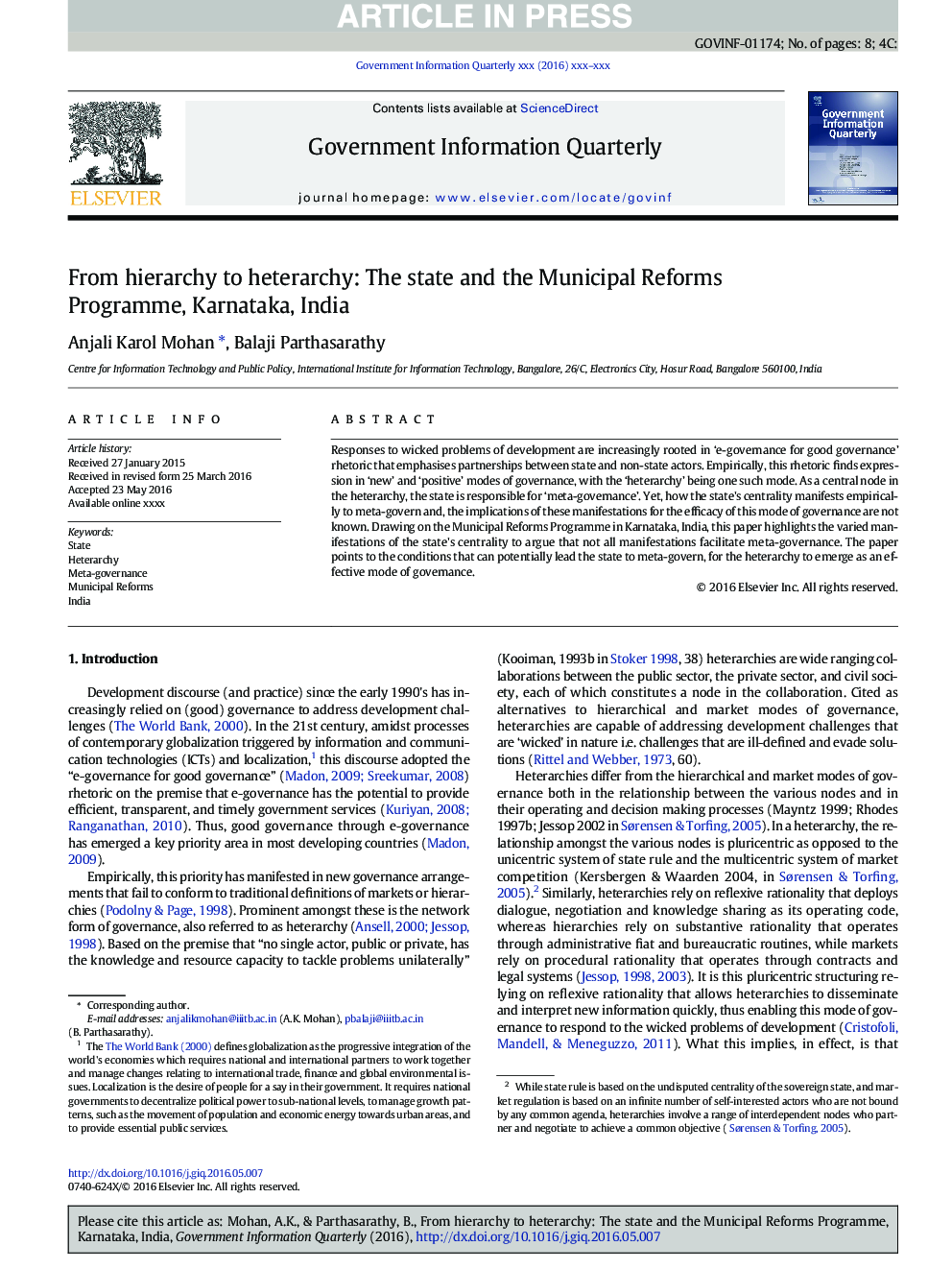| Article ID | Journal | Published Year | Pages | File Type |
|---|---|---|---|---|
| 5110637 | Government Information Quarterly | 2016 | 8 Pages |
Abstract
Responses to wicked problems of development are increasingly rooted in 'e-governance for good governance' rhetoric that emphasises partnerships between state and non-state actors. Empirically, this rhetoric finds expression in 'new' and 'positive' modes of governance, with the 'heterarchy' being one such mode. As a central node in the heterarchy, the state is responsible for 'meta-governance'. Yet, how the state's centrality manifests empirically to meta-govern and, the implications of these manifestations for the efficacy of this mode of governance are not known. Drawing on the Municipal Reforms Programme in Karnataka, India, this paper highlights the varied manifestations of the state's centrality to argue that not all manifestations facilitate meta-governance. The paper points to the conditions that can potentially lead the state to meta-govern, for the heterarchy to emerge as an effective mode of governance.
Keywords
Related Topics
Social Sciences and Humanities
Business, Management and Accounting
Business, Management and Accounting (General)
Authors
Anjali Karol Mohan, Balaji Parthasarathy,
